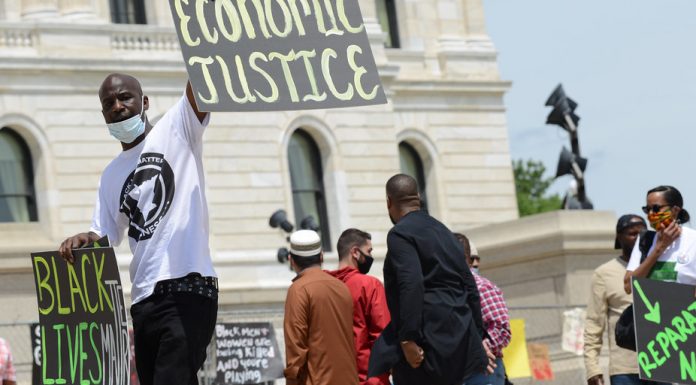A group of Harvard Medical School researchers contended in a recent study that reparations could have radically reduced coronavirus transmission among black Americans.
The study claims COVID-19 transmission could have been reduced by as much as 31% to 68% if a reparations program had been introduced before the pandemic began.
Researchers arrived at this conclusion by comparing COVID-19 infection rates in Louisiana with infection rates in South Korea, despite major differences between the two polities.
Researchers modeled the impact of monetary payments of $800,000 per household, or $250,000 per individual, and found that this money would help decrease overcrowded housing among black Americans; prevent them from being “forced as frequently into high-risk frontline work;” and enhance the ability to access hand sanitizer and face masks.
“At the immediate outset,” the study says, “path-dependent structural inequalities such as greater overcrowding, concentration in frontline work, and hyperincarceration led directly to greater exposure and transmission among black people.”
“A restitutive program targeted towards black individuals would not only decrease COVID-19 risk for recipients of the wealth redistribution, the mitigating effects would also be distributed across racial groups, benefiting the population at large,” the study continues.
The study is part of a larger report by the Lancet Commission on Reparations and Redistributive Justice, which is set to be released this summer, according to the Harvard Crimson.
The study’s author, Eugene Richardson, also happens to chair this commission.
Richardson argued accurate coronavirus models should take into account social justice and its effects.
“Almost all of the COVID models you’ll look at have to do with wearing masks, social distancing, closing down businesses — that kind of thing. Yet, there are these huge health disparities — notably between people of color and white people, especially in the U.S. — and you rarely see racial justice interventions being incorporated into these models,” he said.
Another one of the study’s authors, Harvard Medical School assistant professor Michelle Morse, argued the U.S.’s failure to compensate black Americans for their struggle with slavery more than 100 years ago is part of the reason why so many Americans suffered from the virus.
Reparations “could have been as effective as a vaccine,” she said.

